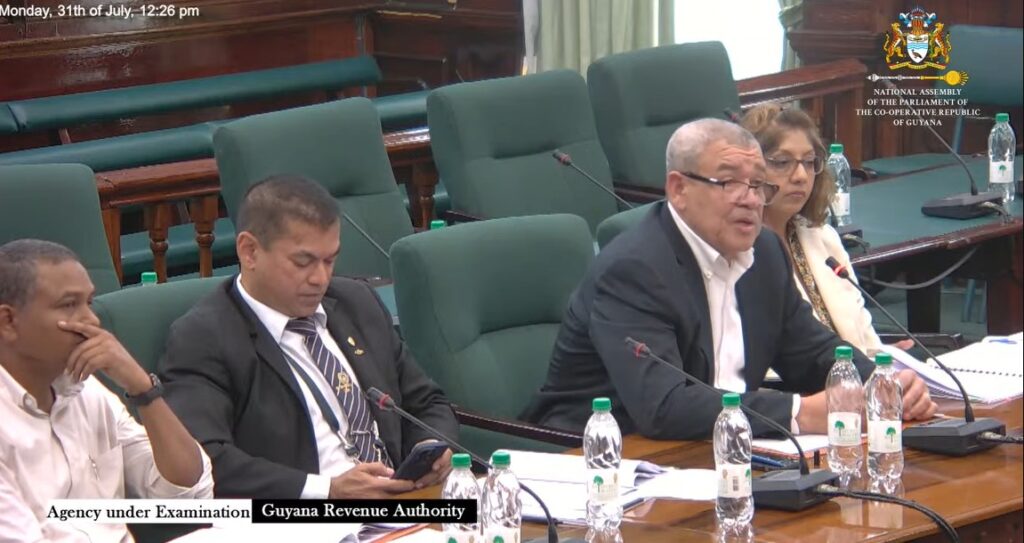The Guyana Revenue Authority (GRA) has less than half of the staff it needs in the Petroleum Revenue Department that deals with monitoring, auditing and otherwise regulating companies operating in Guyana’s nascent oil and gas sector.
This was revealed by the tax regulator’s Commissioner General Godfrey Statia when he appeared before the Public Accounts Committee (PAC) on Monday.
During Monday’s sitting, members of the PAC were examining the 2019 Auditor General’s report. And in that report, it was noted that the Petroleum Revenue Department, which was established in September 2019, had numerous vacancies.
The report highlighted that the department has an approved staff complement of 67 persons but only 15 people were hired. Therefore, there were 52 vacancies.
A majority of the vacancies were in the tax audit division (16 vacancies), the cost recovery audit division (18 vacancies) and the petroleum revenue service (15 vacancies).
On Monday, Mr. Statia said the department’s approved staff complement is now 65 and there are 31 staff members. He added that the tax audits section is now fully staffed.
Still, another 34 people are still needed.

Those workers are particularly needed in the cost recovery audit section where persons have been outsourced to audit the financial statements of the oil companies operating in Guyana.
Mr. Statia said efforts have been made to attract people by offering higher salaries and appealing to their sense of patriotism. But that hasn’t been enough.
“Most of the time, I appeal to their patriotism.
“I think we offer our staff the best pay and conditions than the rest of the public service… twice, maybe, as the rest of the public service and they still leave,” the Commissioner General lamented.
So the tax regulator has been training a wide cross section of its existing staff, preparing them to be transferred to the highly-technical Petroleum Revenue Department. Once deemed competent, those persons who get training are transferred to the understaffed department.
That’s how the staff complement increased from 15 to 31 between 2019 and now.
But another challenge presents itself.
According to Mr. Statia, those trained workers are often recruited by oil companies working in Guyana. Those companies, he said, offer them salaries even higher than his.
As such, there remains a shortage of staff and skills, forcing the GRA to engage in selective audits focused on the areas where the largest returns can be garnered and harness the skills of external auditors while training more staff.
“If you train the entire staff, I think we could meet targets in a couple of years.
“Oil and gas training is a technical aspect of taxation and you do not meet that level almost immediately,” Mr. Statia said.





